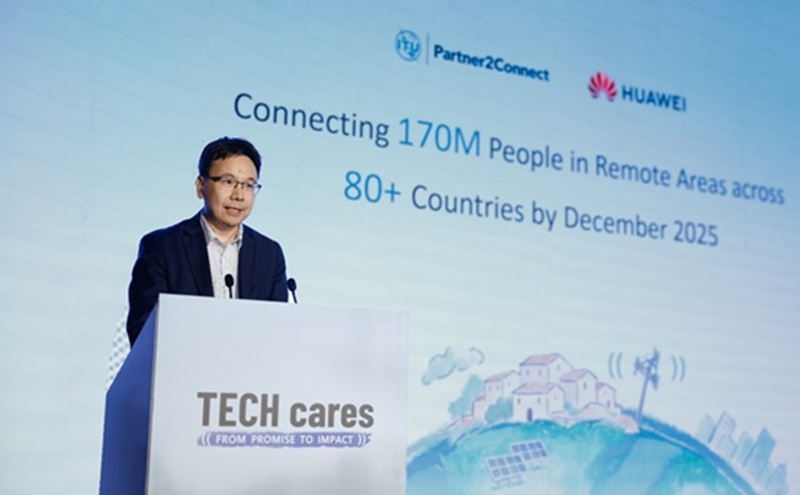Glints Reveals Increased Demand for Southeast Asian Startup Talent from Hong Kong and Mainland China
4th March 2024, Kathmandu
Glints observes a rise in cross-border hiring from Hong Kong and mainland China to Southeast Asia, with Hong Kong companies aiming for cost-efficiency and talent acquisition, while mainland China prioritizes expansion and utilizes Singapore as a strategic base.
Glints, the leading talent platform and solution in Southeast Asia, and Monk’s Hill Ventures (‘MHV’) today released The Southeast Asia Startup Talent Report 2024, providing the latest insights on the impact of Artificial Intelligence (AI) on hiring and team building and the overall talent landscape in Southeast Asia.
The report identifies hiring trends, salary, and equity data for startup talent from over 10,000 data points, 183 C-suites and founder data points, and interviews with founders across Singapore, Indonesia, Vietnam, and China’s Taiwan.
While 2023 saw divergent salary trends in Southeast Asia’s tech sector, with junior engineering roles experiencing a 6% decline, revenue-generating roles such as business development and sales saw increases of up to 20%. This can be attributed to startups prioritizing profitability and cost-saving measures. However, demand for Southeast Asian talent remains strong despite global layoffs and cost-cutting measures, as evidenced by a fourfold increase in cross-border job postings from Hong Kong and mainland China observed by Glints in the first half of 2023 compared to the same period in 2022.
Key market observations:
Hong Kong companies target SEA tech talent for skill sets and cost savings: Salary differentials are a key driver, with roles in Taiwan offering 30-40% lower costs compared to Hong Kong for sought-after mid-level positions such as full-stack developers, DevOps engineers, and data scientists, based on our observations. Markets in Southeast Asia such as Vietnam and Malaysia can offer even lower costs for similar positions. This provides employers with cost savings while acquiring tech talent in a competitive market.
Mainland China companies prioritize sales, business development, and marketing/PR in Southeast Asia: A study by Bailian.AI surveying 366 mainland China-based companies aligns with these observations. The top reasons for hiring cross-border talent in Southeast Asia include expanding into the region or using Singapore as a global base, with a focus on local business development talent for localization and market understanding. This highlights local knowledge for successful sales, marketing, and PR campaigns.
“The increase in cross-border hiring by Hong Kong and mainland China-based companies reflects their strategic responses to different market needs. Hong Kong companies are focusing on cross-border hiring to enhance profitability and reduce costs by accessing a wider talent pool for building high-quality teams. On the other hand, mainland China-based firms are leveraging this approach to support their expansion into Southeast Asia or on a global scale, with Singapore often serving as a pivotal base. Both, however, encounter the shared challenge of localization in Southeast Asia, where navigating culture, customs, and regulations becomes crucial in establishing effective regionally distributed teams,” said Puay-Lim Yeo, Managing Director of Glints.
Startup salaries in Southeast Asia fell in 2023 with junior engineering roles seeing the sharpest decline of 6%. However, most senior tech roles saw steady year-on-year growth, with senior engineer roles posting a 2-3% increase.
The supply of junior candidates in Southeast Asia increased significantly due to tech layoffs. This influx has resulted in a downward adjustment of salaries across various positions. In contrast, senior talents, such as VPs of Engineering, remain in demand.
Soft skills such as critical thinking and creative thinking are increasingly prioritized due to a tightened market and an emerging AI-centric landscape. Additionally, a growing number of founders in Southeast Asia now see proficiency in AI tools as a basic requirement for both tech and non-tech roles, akin to the use of email or Excel.
AI is boosting productivity in the workplace in Southeast Asia, yet jobs remain secure. Founders recognize employee concerns about job displacement as a key obstacle for AI adoption in the workplace, yet, these fears have not materialized in practice.
Hybrid work is rising in Southeast Asia as startups prioritize flexibility to retain talent. Flexible work arrangements, including hybrid models, are trending at the top of startups’ strategies for retaining talent. This move towards hybrid work to balance operational efficiency with employees’ growing demand for flexibility, is expected to persist into 2024.
Methodology – We analyzed over 10,000 data points for tech startup roles in Singapore, Indonesia, Vietnam, and Taiwan from Glints’ and Monk’s Hill Ventures’ databases. We conducted detailed surveys and in-depth interviews with 183 C-suite executives and founders, alongside a qualitative survey involving 72 startups within the specified countries.
Additionally, our findings were enriched by insights from the 2023 Glints report on “ChatGPT’s influence on the labor market,” which surveyed 1,838 respondents across Southeast Asia. Our methodology aimed to provide a holistic view of the startup ecosystem, focusing on roles, compensation, AI trends, and the future of work, ensuring a robust framework for understanding the evolving landscape of startup talent in Southeast Asia.
About Glints
Glints is the leading talent platform and solution in Southeast Asia. Our mission is to enable the 120 million professionals in the region to grow their careers and empower organizations to hire the right talent from anywhere in Southeast Asia. Officially launched in 2015 in Singapore, Glints has empowered more than 6 million talents and 60,000 organizations to realize their human potential.
Today, we stand at the forefront of human capital empowerment as the fastest-growing startup in the career development and talent recruitment space. Glints operates in Indonesia, Malaysia, Singapore, Vietnam, the Philippines, and Taiwan. For more, visit www.glints.com.
About Monk’s Hill Ventures (MHV)
Founded in 2014 by entrepreneurs Peng T. Ong and Kuo-Yi Lim, MHV is a venture capital firm investing in early-stage tech companies, primarily Pre Series-A and Series A, in Southeast Asia. Backed by institutional investors and family offices worldwide, MHV works with great entrepreneurs to use technology to improve the lives of millions of people in the region. For more, visit www.monkshill.com.
The issuer is solely responsible for the content of this announcement.







